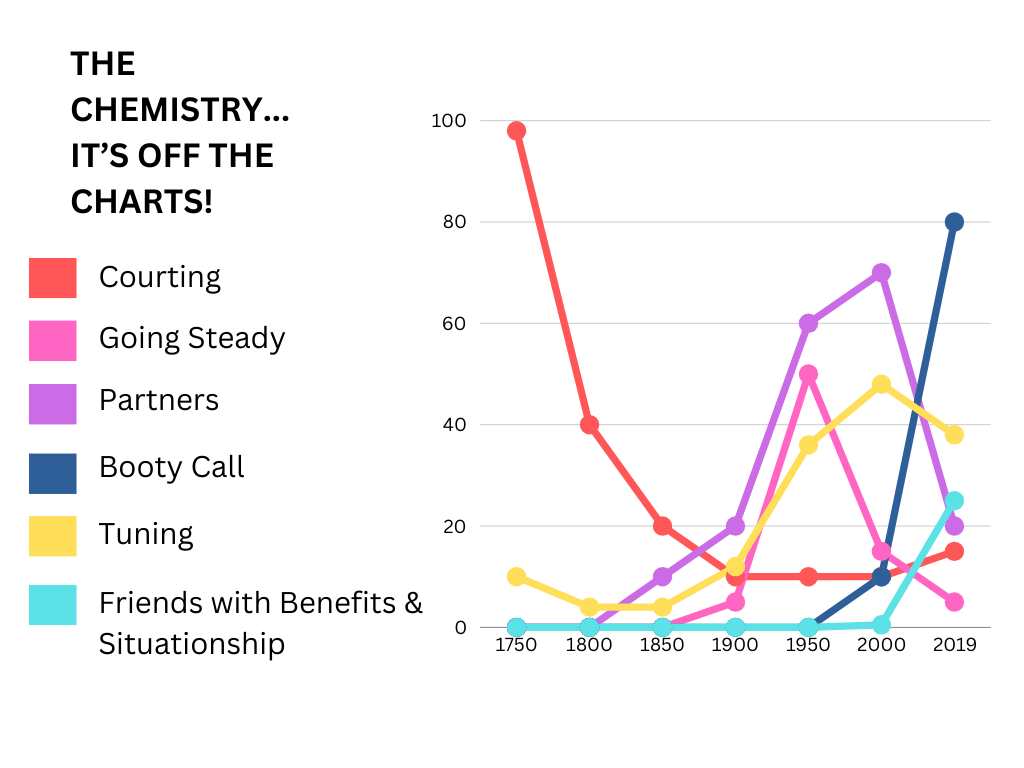The dreaded situationship. There’s nothing that triggers sighs more than the “I like you but not enough to date you!” trope. Whether it is a hushed whisper between giggling friends or a glossy eyed ‘date’ debrief, the term ‘situationship’ is becoming the more frequent descriptor in the contemporary relationship scene.
If you ask me, a situationship is when someone takes your hand, kisses your knuckles and holds you while they’re on a phone call. They also happen to be in a group setting with all your mutual friends and proceed to claim — no, insist — you’ve only ever been friends. The term did not just pop out of nowhere, and was coined back in 2017 by Carina Hsiesh who claimed that a situationship was a more intense form of friends-with-benefits, this time without the officially dating component.
Labels for relationships have a way of evolving over time: ‘courting’ and #goingsteady are long gone, ‘sneaky links’, ‘rizzing’ and ‘tuning’ fizzled out during high school. Unfortunately, the aforementioned ‘situationship’ has been on the rise, and I don’t think it’s going anywhere… at least for a while.
This visualisation shows us when each term peaked in literature. Due to the limited ability of Google Ngram, 2019 is the latest year available — COVID-19 sure did a number on relationships. ‘Courting’, my personal favourite, peaked in use around 1755. Instead of being courted and having men fighting for my father’s approval, I now have to ‘tune’ someone from Hinge. Bring back the bloodshed and the gentleman’s duel for my affections!
While most of the terms all had a stable usage over time, ‘the situationship’ is the only phrase that had a drastic incline, increasing by 2000% between 2014 and 2019. What is it about a ‘situationship’ that makes it such an attractive label? Why have terms like ‘courting’ and ‘going steady’ faded out? It could be simply due to language evolving over time but I think there is more to it.
In an age where working multiple jobs and somehow trying to prioritise your social life and career aspirations is the norm, people appear less willing to commit to relationships. So begs the question, is the rise of situationship adjacent to a more ambitious generation? I propose that we are living in an age of intimacy inflation.
Physical intimacy can be found through multiple avenues, including dating apps, whereas historically, intimacy was promoted as predominantly occurring within the confines of a relationship. By categorising intimacy from first base to fourth base (sometimes more), physical intimacy was something to be unlocked upon the progression of a relationship. As a society, we have largely moved beyond these conservative norms, despite many still opting to conform to them. However, couples no longer have to wait till marriage or engagement for sex to be on the table (literally and metaphorically speaking).
Thanks to hustle culture, we’re busy and we’re tired. Our lives can be fulfilling without long-term relationships, and in moments where we crave physical intimacy caused by another TikTok soft launch trend or Spider and Missy’s height difference in Heartbreak High (2022-), we can get a quick fix within minutes through a Hinge match.
While this can be great in the short-term, is it possible that since intimacy is more easily accessible that we struggle to recognise when we crave intimacy the most? Because of this intimacy inflation, we can settle for a situationship that is somewhat emotionally fulfilling without sacrificing aspects of our daily lives to accommodate for the commitment that is assumed and expected in a relationship.
On a personal level, I’ve had my fair share of situationships. I have considered different relationships and dating different people, but at this point in my life I’d much rather focus on my friendships. Situationships have been more fulfilling than any lacklustre relationship and as for the connections I already have, they provide sufficient comfort that I don’t need to put effort into an additional commitment.
That being said, while situationships can be suitable to your lifestyle, they can also be incredibly draining; the constant will they/won’t they, or the usually one-sided game of who can leave the other on ‘delivered’ the longest. Case in point: the drunk stumbling and ugly crying in front of a group of your friends at a gig because your situationship has just told you they were serious when they said they didn’t want a relationship and you thought they would change their mind.
While us mere mortals usually look back on situationships with regret on what could have been, other thoughts that tend to arise are to the effect of: Why did I waste my time thinking about a man who didn’t know what the literary canon was?
This contradictory belief could be a defence mechanism or it could be part of an intellectual awakening. Discourse is currently too preoccupied on what the parameters of a situationships are or if this is another label that will fade out eventually. So, what happens when the term ‘situationship’ loses popularity? Which label will overtake it?
Brace yourselves, because the post-situationship is coming. The only question is, when?





